The Theatre of Black Creation
A convo about Theatre as an artform, unconventional creative mediums and how Black folks should be present in all of them.
“One of my favorites of all time is ‘Dream Girls.’ I know the whole thing by heart.”
- Cookie
Your Stories are more than Stories.
I’ve been dating Cookie for about 3 years now. One of the many unquantifiable things that I love about her is her love for the world of theatre. She’s a stage manager at a production company here in Detroit that has put many different theatrical events together. My own understanding of theatre is very slim, to say the least. Like, I knew Tyler Perry made plays and stuff, but beyond Tyler, I never cared to see “The Phantom of the Opera,” “Romeo & Juliet” or none of the “here ye, here ye” type shit. I just figured that’s what it was. (RESPECTFULLY lol)
However, meeting Cookie and telling me everything she loves about theatre as an art form made me want to do my own research and try to understand her world. You can’t just be out here dating somebody and not want to learn everything about who you’re with. It’s 2025, it’s just what it is. Let’s bring real intention to black love, y’all. (That’s a different post lol)
Cookie invited me to a big event she was working on in 2024. Obsidian Theatre Festival is a Black-centered performing arts festival based in Detroit, Michigan, highlighting new works by Black playwrights and creatives, founded by John Sloan III, with a mission to celebrate and uplift the richness of Black storytelling in the American theatre landscape. And they did just that! As I’m walking through the halls of the prestigious Detroit Opera House, I see so many beautiful black folks dressed to impress, ready to see the amazing works. Obviously, I’m underdressed, so I sat close the back lol.
As the seats started to fill in, I saw Cookie holding a walkie-talkie, clipboard, or binder-type thing going back and forth from the stage to backstage and the stage again. Working like I’ve never seen before, her hair just bouncing as she pivots to talk to John, then some stage crew, some people she knew that were just there to see the show, I’m talking about WORKING working. She didn’t stumble or hesitate. This is the type of movement that damn near felt rhythmic like a dance and before I can even look at my phone to check the time, the lights went dim and the show began.
There were so many powerful stories told, the one that stood out to me the most was a story called “Ti’mon” written by Ashlee K. Thomas. Ti’mon is a dystopian musical about a young Haitian boy who’s been surviving alone in France for five years until he’s uprooted and sent to America to live with a woman he doesn’t know, who he calls “Mother.” Everything about this new world feels cold, confusing, and wrong. With no one to trust, Ti’mon clings to the only thing that’s never left him, his doll, Eshleem. Together, they dream up a way out of their situation.
Nigga…
You know the show is good when you gotta stand up and clap. Lol. I even asked questions about the play and everything, and I’m so excited to see how she continues to build on the story. What moved me most about the story was a very minute detail that I didn’t conceptualize until I left the theater: Ti’mon had a stutter when he spoke. When he spoke with Eshleem, the doll, he was clear, concise, and coherent, but when he spoke to Mother, the words tumbled out unevenly and unsure. Now, I’m not sure if that was intentional, but what I took from it was:
How many situations are we placed in that are considered “safe spaces,” but we don’t have the power to speak as safely as we want?
There was some poetic feeling that sat with me about that question especially in the context of Ti’mon. Him being a Haitian boy. His safe space of his doll that was a black woman. The fact that he wanted to escape. The fact that this was a musical and not any other artistic medium. So many things. I wonder if that boy had the spirit of Toussaint Louverture and Jean-Jacques Dessalines in him that gave him the clarity to want to plan his escape from his matriarch.
Storytelling is more than just stories yall.
It’s the ancestors telling you to speak.
Theater is Blackity Black.
Hey, ain’t no telling. I was just there for my woman and saw a great show. However, that story lingered with me longer than I thought it would. So down the rabbit hole I went. I wanted to look more into the medium of theatre and why it can be so moving. I followed the bright lights of Broadway and Off-Broadway, Cookie’s dream place, to learn more. I found the names and works of Suzan-Lori Parks, the first Black woman to receive a Pulitzer Prize for Drama in 2002 with Topdog/Underdog, and Ntozake Shange, the Obie award winner with her work “for colored girls who have considered suicide / when the rainbow is enuf”, August Wilson with his Pulizer winning works for Fences, The Piano Lesson and so many other amazing playwrights.
They were just some of the many pioneers here, but why tf ain’t Black folks in theatre talked about all the time? I smell whitewashing, but that’s why I’m here to keep y’all hip. Theatre isn’t a white art form, and if you didn’t know, you’ll know from here on out, we brought with us from home a lot of what we do creatively across the diaspora.
Before Western theatre ever formed a stage, performance in Africa was already a complex, embodied art form. In pre-colonial African societies, theatre was not confined to written scripts or architectural spaces. It existed as a living, spiritual, and communal practice, interwoven with ceremony, politics, history, and the divine.
Among the Yoruba people of Nigeria, the Egungun masquerade was and remains a sacred performance through which ancestral spirits return to commune with the living. Dancers wearing elaborately layered costumes and masks are believed to become vessels for the spirits, channeling messages from the ancestral realm through rhythmic movement, drumming, and song. These performances are not symbolic. They are believed to be literal embodiments of the dead and are treated with spiritual reverence. This is theatre as a ritual, where the audience and the performers are spiritually bound.
In Mali, the Dogon people perform the Dama, a multi-day funerary ceremony designed to guide the souls of the deceased to the afterlife. Towering masks, intricate choreography, and complex drumming cycles are central to the event. Each mask represents a spiritual or social archetype, ancestors, hunters, the cosmos, and their movements reenact Dogon cosmology. Here, performance becomes not just cultural memory, but cosmic storytelling.
Across West Africa, the role of the griot (or jeli in Mandé culture) formed the foundation for narrative performance. Griots were oral historians, musicians, praise singers, and diplomats. They maintained collective memory through performance, reciting genealogies, recounting historical battles, and delivering moral instruction, all accompanied by instruments like the kora or balafon. The griot’s performance was spontaneous, improvisational, and rhythmic, melding fact and poetry, truth and metaphor. This tradition is one of the oldest forms of narrative performance worldwide.
African performance traditions were multimodal, integrating music, dance, visual design, oral poetry, and collective participation. They were interactive, often performed in circles, encouraging call-and-response. The audience was not passive; it was activated. Theater was embedded in rites of passage, seasonal cycles, initiation rituals, justice systems, and education.
These traditions predate Greek theatre and exist independently of Western dramaturgy. Where the West elevated written text, African performance elevated memory, rhythm, embodiment, and transformation; these were not “primitive” art forms. They were intentional, structured, and deeply philosophical, rooted in African metaphysics, cosmology, and social ethics. (I fucking hate the word “primitive” but I used it just to let yall know that I hate it.)
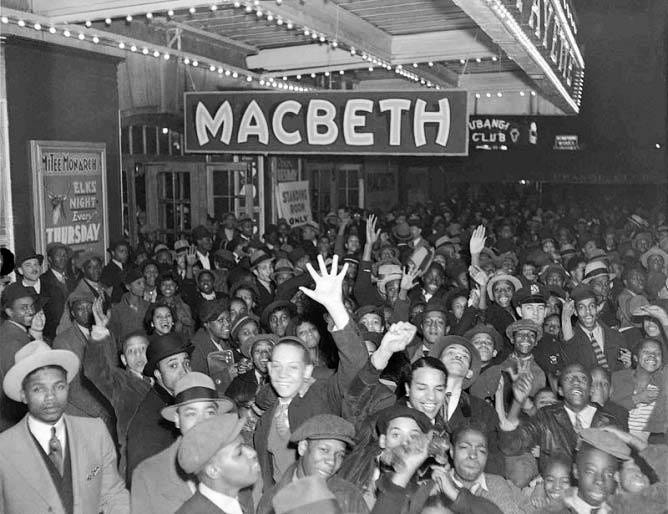
The notion that Black people entered the theatre chat in the 20th century is historical erasure dog. In its truest and oldest form, Black theatre began in the villages, under the stars, in the drumbeat, and in the spirit. It existed in parallel, and in many ways, I’d argue that it preceded the world itself.
Creation at its core is Black. From the Black, we create worlds.
Shit, even in the Bible they say “In the beginning, God created the heavens and the earth.”
Out of what?
Right…
Say it Witcho WHOLE chest.
There comes a moment in Black life when you realize nobody is going to hand you permission to exist.
Nobody is coming to tell you your art matters.
Nobody is going to stop the world, point to your soul, and say, “This is valid.”
So this is your permission slip.
You have to do it.
Then find people who will love you and do this for you, too.
You must declare your existence.
What Kendrick say?
Through ya rhythm, your daily rituals, your art, your stories, plant your fucking flags dog and making something out of nothing.
This shit is survival.
Black existence has always been met with some type of fucking confrontation.
To be Black and creative is to stare into the absurdity of a world that erases you, and say: “I still choose to make.”
“The precise role of the artist, then, is to illuminate that darkness, blaze roads through that vast forest.”
– James Baldwin from The Creative Process
You were born into a system that said:
Be quiet. Be invisible. Be useful. Be controlled.
But you are none of those things.
You are wild with intention.
You are chaos turned composition.
A walking fucking cocophany of Africa’s soil.
Your creativity is proof of life.
It’s you choosing meaning in a world that keeps trying to render you meaningless.
So take up space.
Act strange.
Refuse to shrink.
Paint with your pain.
Speak from your shadow.
Stage your joy.
Live like the world is your audience even if ain’t nobody looking.
Cause they tried to trick you outcho birthright.
Tried to convince you you were background noise in your own fucking story.
But the truth is:
You were always the playwright.
“In the world through which I travel, I am endlessly creating myself.”
– Frantz Fanon from Black Skin, White Masks
And now, it’s on you.
To write.
To build.
To perform.
To remember.
Even if no one claps.
Even if no one gets it.
ESPECIALLY THEN.
Because Black creativity is resistance.
It’s reclamation.
It’s the quiet rebellion of saying:
“I exist. And I will not disappear quietly.”
So make your art.
Write your scenes.
Live out loud.
And because the absurdity of this world doesn’t change the fact that:
You are real.
You are necessary.
And I’m counting on you to remember that.
Some Inspo of Artistic Mediums you prolly ain’t know about
I wanted to put some thought into some places we need to be loud in especially to the creatives here that want an outlet to express other than where they are currently. Now don’t get it twisted, you still gotta be in your bag, but you’re more than just the creative medium you frequent. Let’s explore some creative mediums, some known ones, and some more unconventional ones. These are just some out of many but these are just to get the spirit speaking.
Literary Arts
Known
Poetry (page and spoken word)
Playwriting
Fiction (short stories, novels)
Memoir / Personal essay
Journalism / Editorial writing
Rap / Lyricism
Scriptwriting (TV/film)
Unconventional
Erasure / Blackout poetry
Zine-making
Oral storytelling / griot tradition
Speculative fiction / Afrofuturism
Fan fiction
Letter writing as art
Visual poetry / typographic art
Game writing / interactive fiction
Online writing (Instagram captions, tweets, micro-essays, substackin’ tee-hee.)
Visual Arts
Known
Painting
Drawing
Sculpture
Photography
Graphic design
Illustration
Muralism/Street art
Fashion design
Unconventional
Collage & assemblage
Mixed media/textile art
Hair art/braid architecture
Shadow box storytelling
Data visualization as cultural critique
Set design/installation art
Nail art as micro-sculpture
Animation (2D/stop motion)
Album cover design/liner notes as storytelling
Hand lettering/calligraphy
Archive-as-art (scrapbooking, heirloom documentation)
Performance Arts
Known
Acting (theatre/film)
Dance
Singing
Rap performance
Comedy/Stand-up
Public speaking/Slam poetry
DJing/Emceeing
Musical theater
Unconventional
Drag & ballroom performance
Step/body percussion
Mime/gesture-based storytelling
Ritual performance/spiritual drama
Street performance/cypher theater
Foley artistry/live sound performance
Mask work & movement-based acting
Loop pedal performance (layered voice/instruments)
LARPing (live-action role playing)
Performance art (durational, silent, surreal, or abstract)
Immersive theater/site-specific performance
I must love that woman, FR.
If it hasn't been clear enough, I want you to treat this as your call to action to create fr. I want you to dive deep into the things you love and don’t stop until you’re moved to make. That’s the ancestors talking.
A black woman moved me to write to you right now, just with her work and purpose in theater.
Be everywhere, because we need you everywhere.
We’re planning a New York trip soon to hopefully see a play, so I’ll let y’all know how it goes.
Y’all be eazy!
- Jay²
[P.S. I made a playlist called “cinnamon” that’s to help you focus and lock in on what you’re doing creatively. (Fun fact, they say cinnamon helps you focus! i ain’t no scientist, so just take my word for it lol) I hope yall enjoy it just as much as I did making it!]






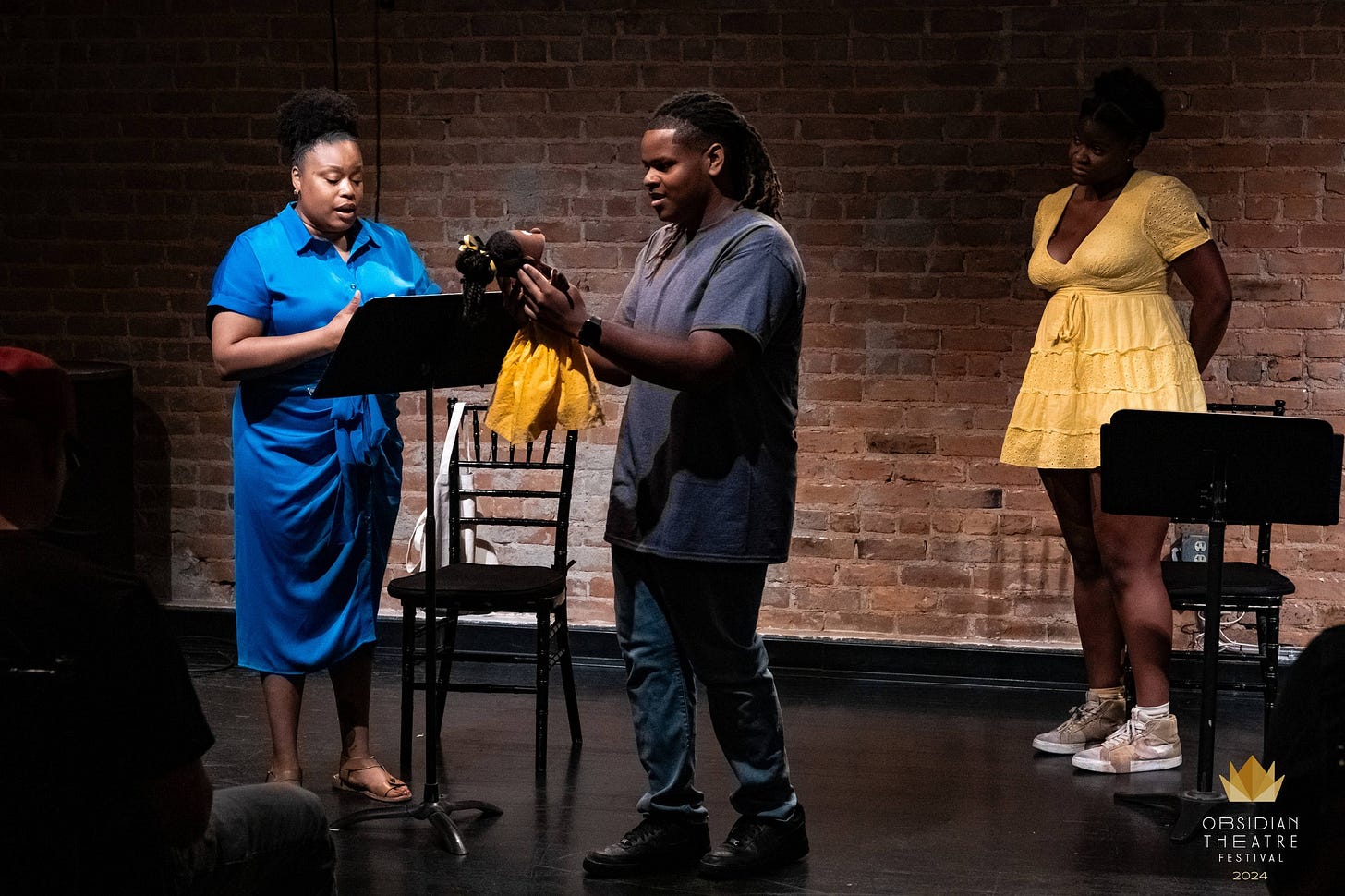
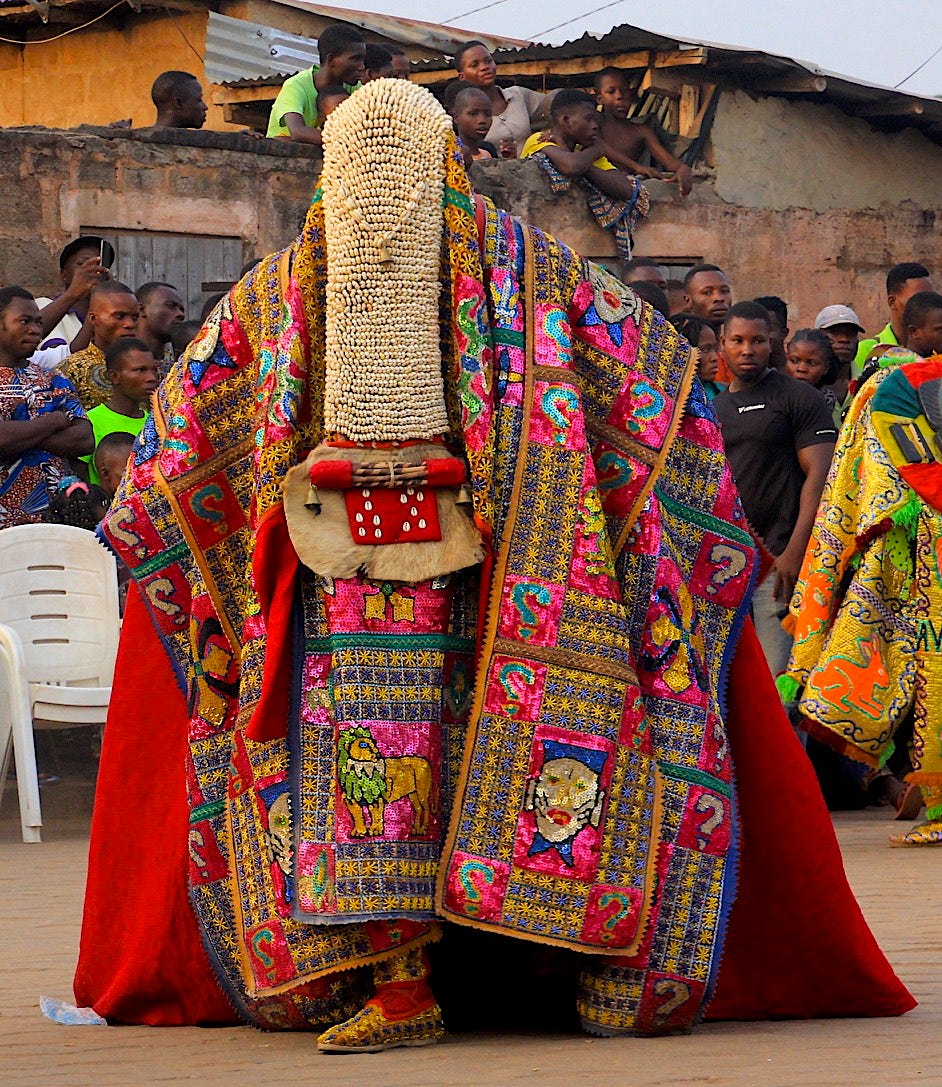
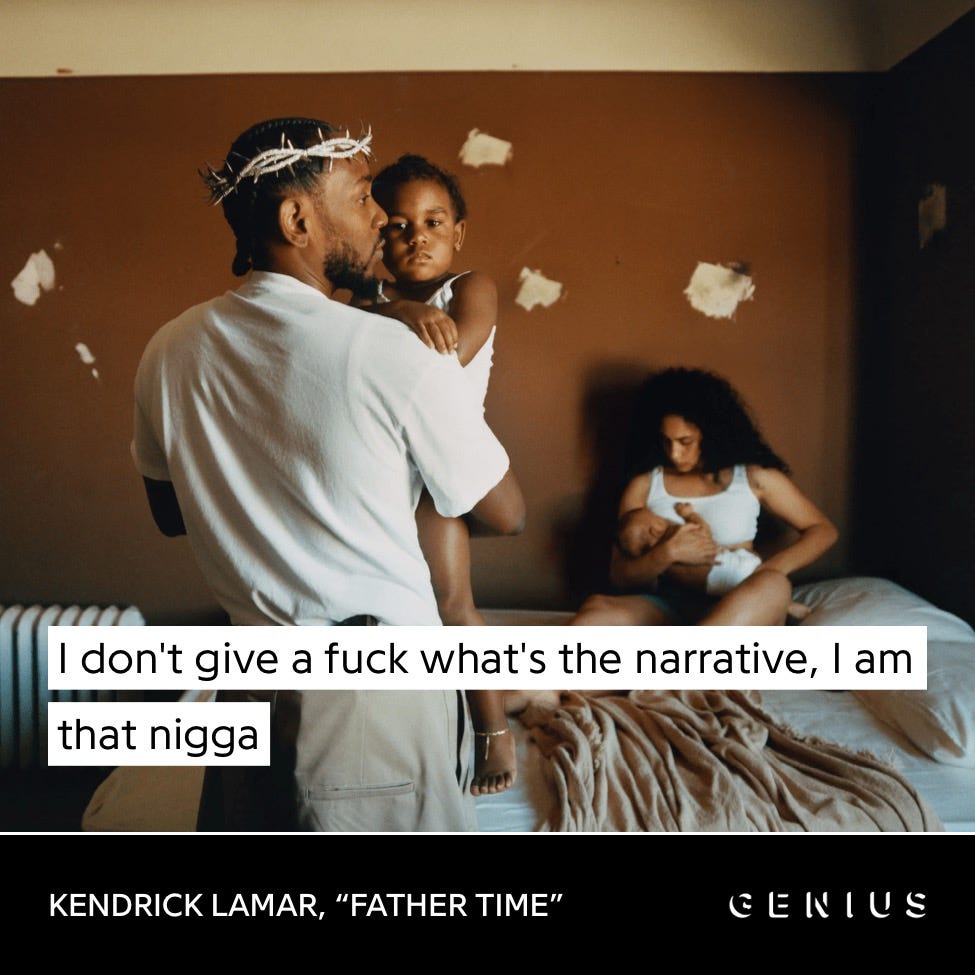
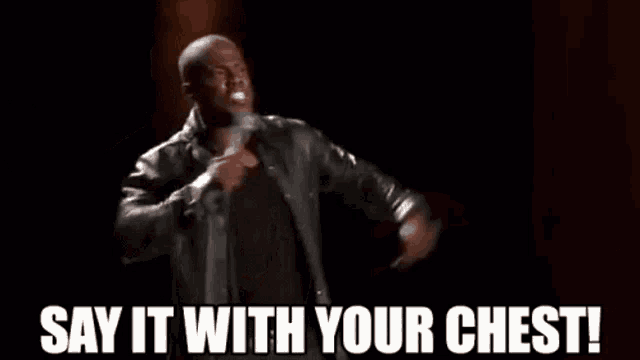
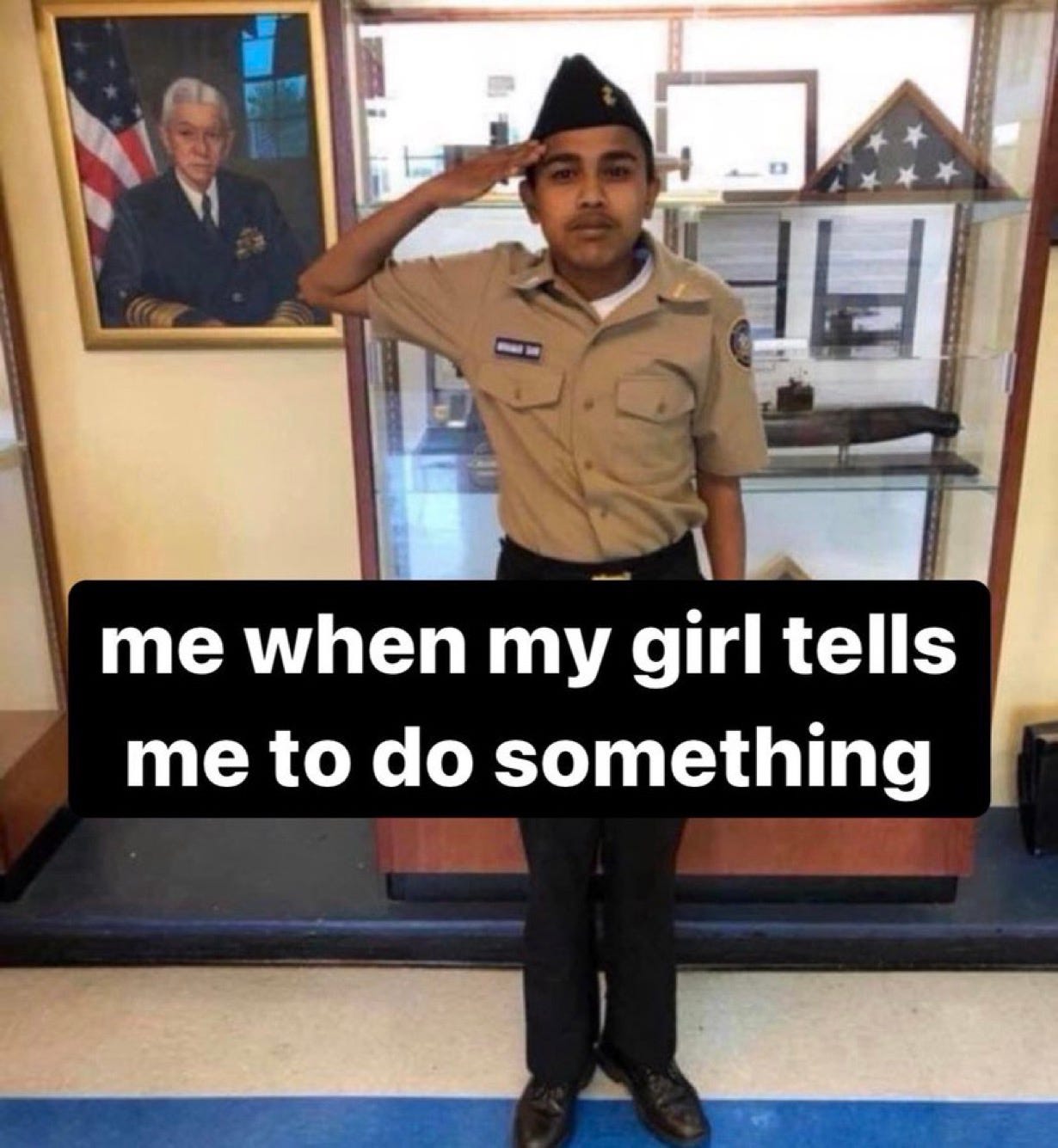

im an actor and writer from london. this moved me in so many different ways, firstly it makes me so happy seeing people discover the joy in theatre its such a magical place ive written essays upon essays for uni about the beauty and nature of theatre and how the focus on screen and celebrity culture has pushed theatre to the sidelines (also the inaccessibility of theatre cant speak for america but it is quite inaccessible here in terms of cost but there are ways around this and i do see signs of things improving.) i was so moved by this piece because this is literlly how i feel about art, just today i published a piece on a review over a book i read (a little devil in america by hanif abdurraqib, which i really recommend. would love to hear thoughts about it from an american) anyways (sorry i ramble in the comments section lol) one of my main takeaways is that to be black is to be an artist which i felt echoed in your piece and i agree that theatre in africa predates modern and classic theatre and if it wasn't for colonialism we wouldve had works like aristotles poetics (the first ever dramaturgy book- or so they say) to show us how classical african theatre was shown. i read the struggle for black arts in britain by kwesi owusu which highlighted how colonists would use theatre and perfomance as a way of slavery, all of a sudden the white people were using them as entertainment not just in the sense where everyone gets something out if it but through degrading and humiliating similar- well actually identical to how minstrels were used in the 60s in the US. "deep are the roots, trailblazers of black british thetare" notes the caribbean influence on british theatre and how it changed the landscape forever i also really recommend this book to delve deeper into the history of theatre in the uk as it is still a widely appreciated night out for those who can afford it. all of this feels like homecoming, the more black stories are put on stage and the more black writers get recognised for their work and black actors are able to be platformed on stage we will be able to reclaim soemthing that has always been alive under our skin. thank you for this!
I Love the way you broke this down in the area of the Art Form of Theatre, Great Job Jay💙💙🎶🎶